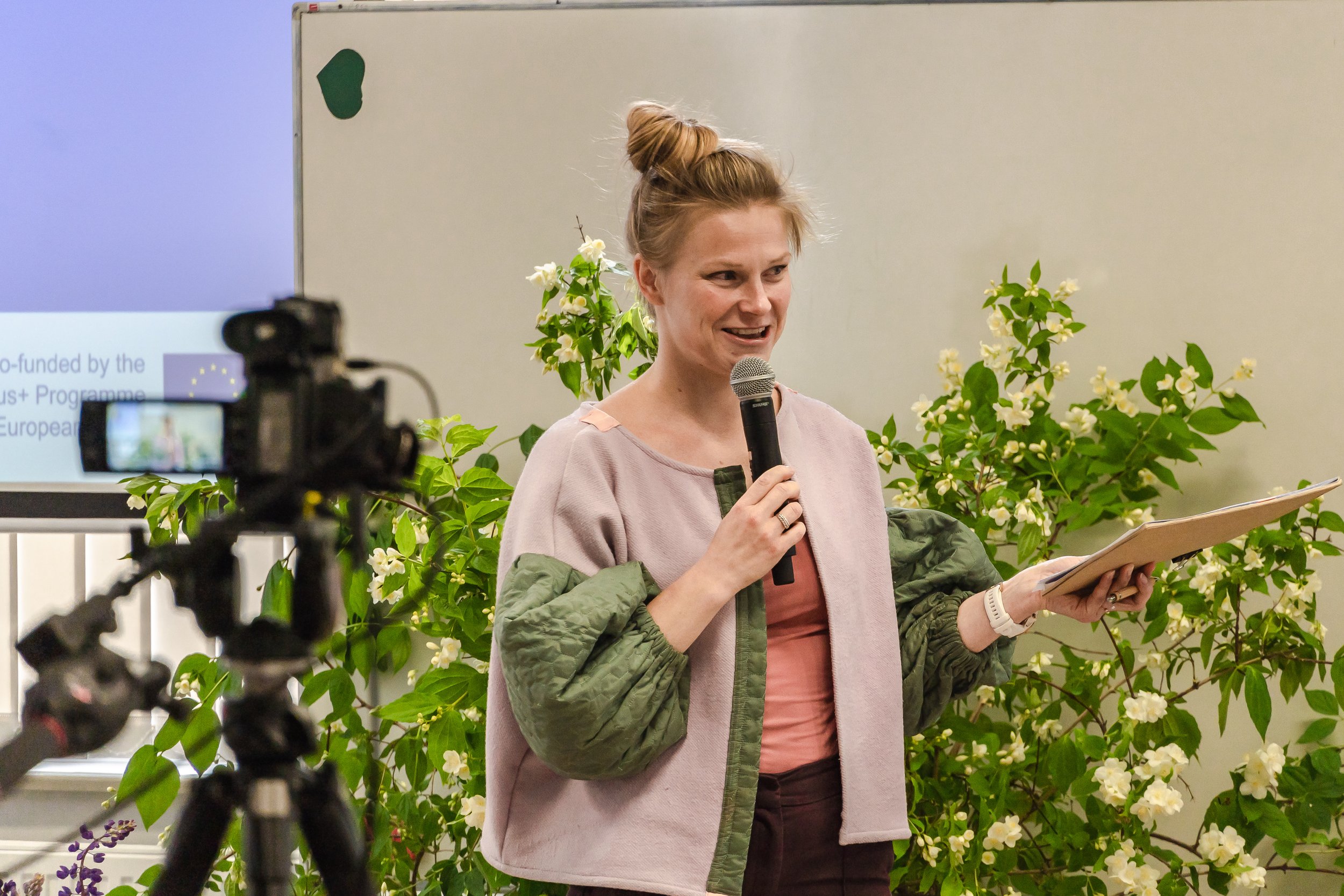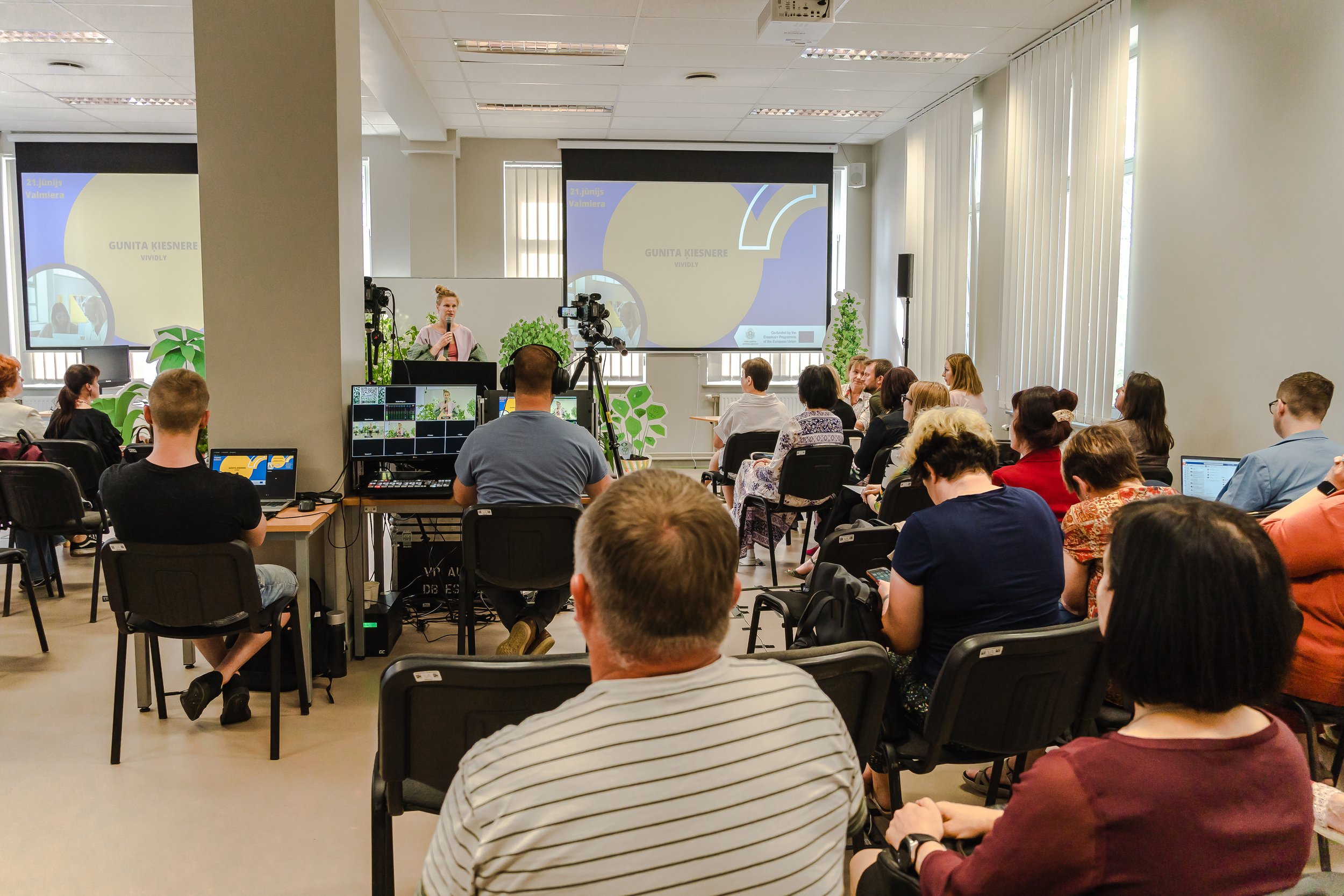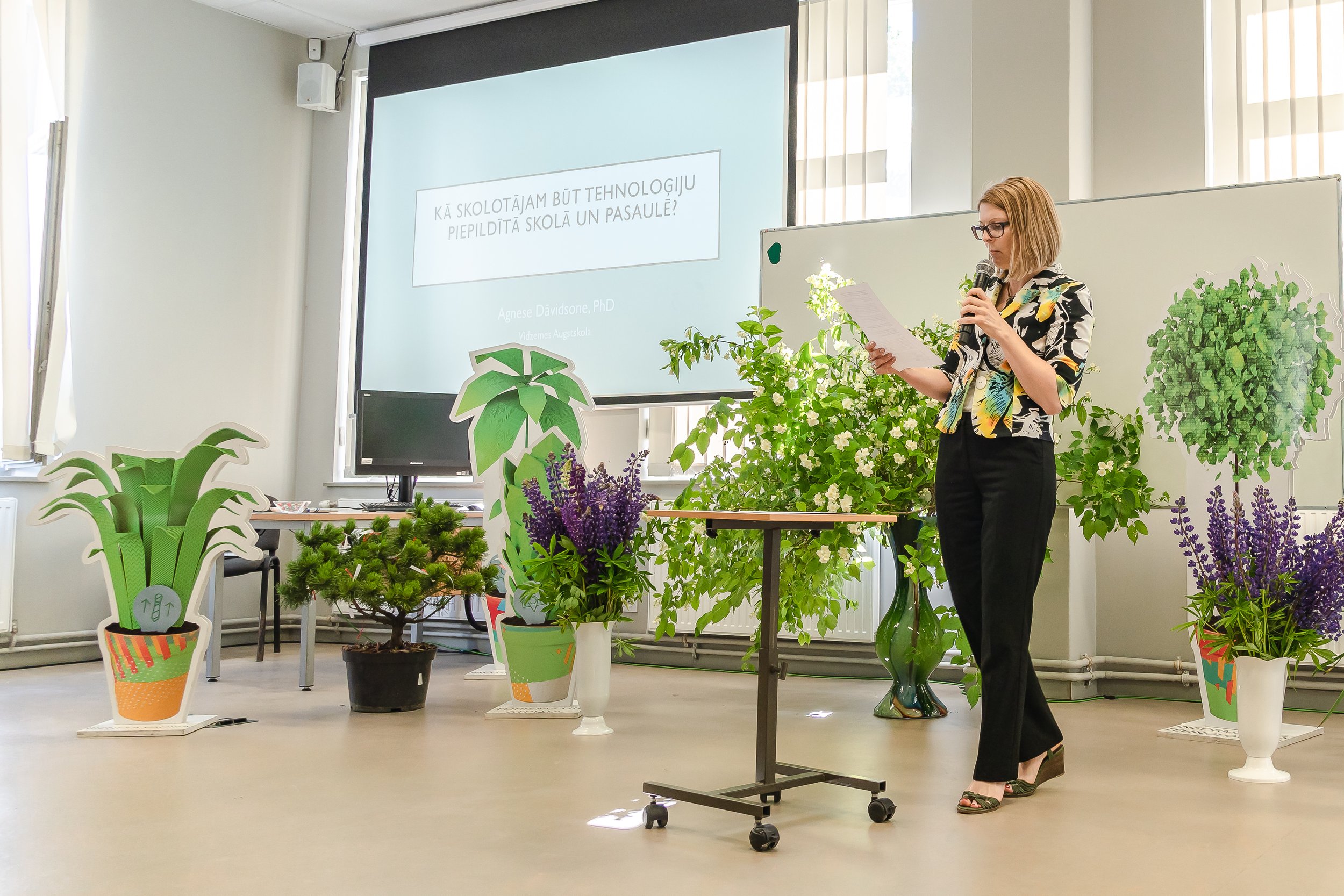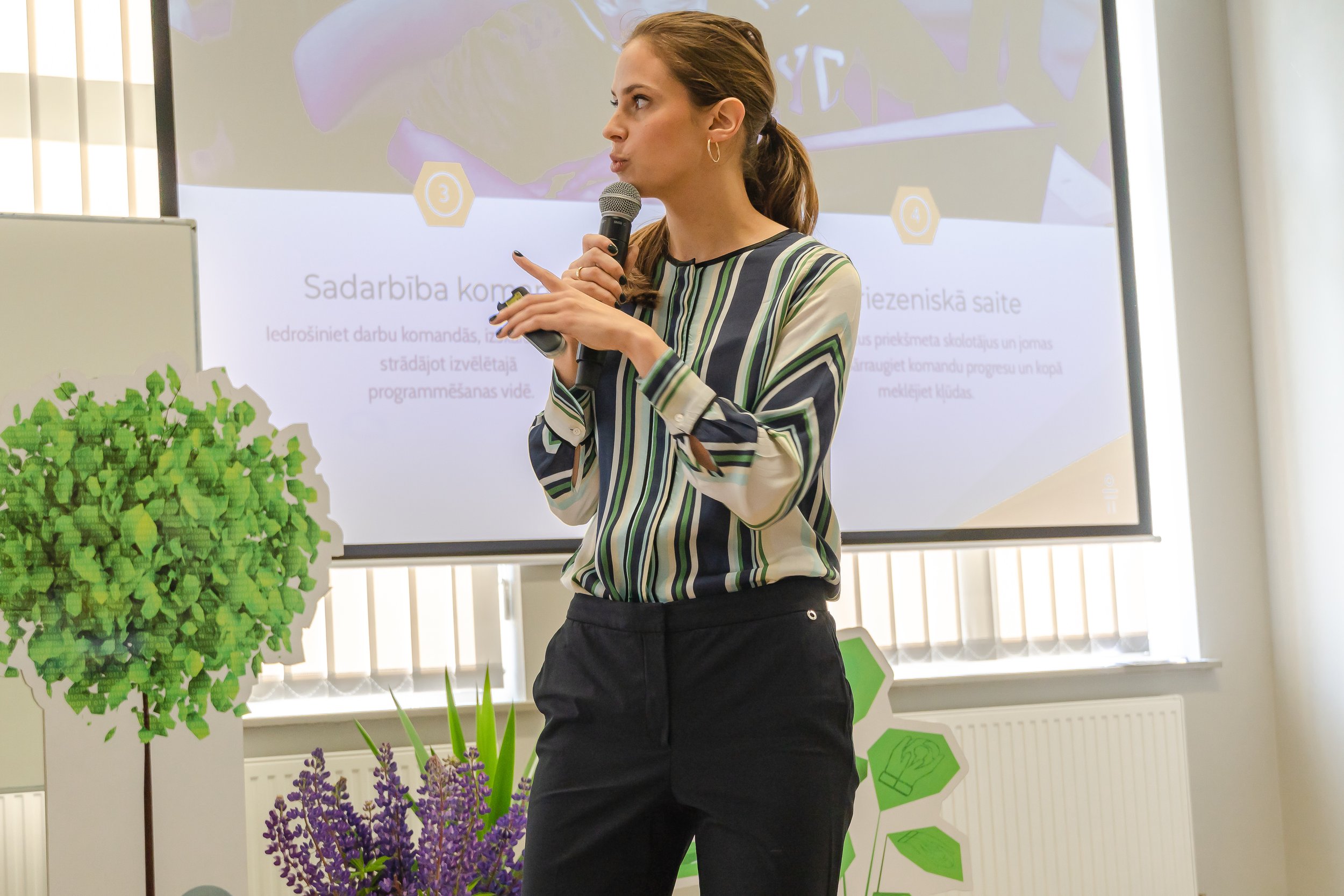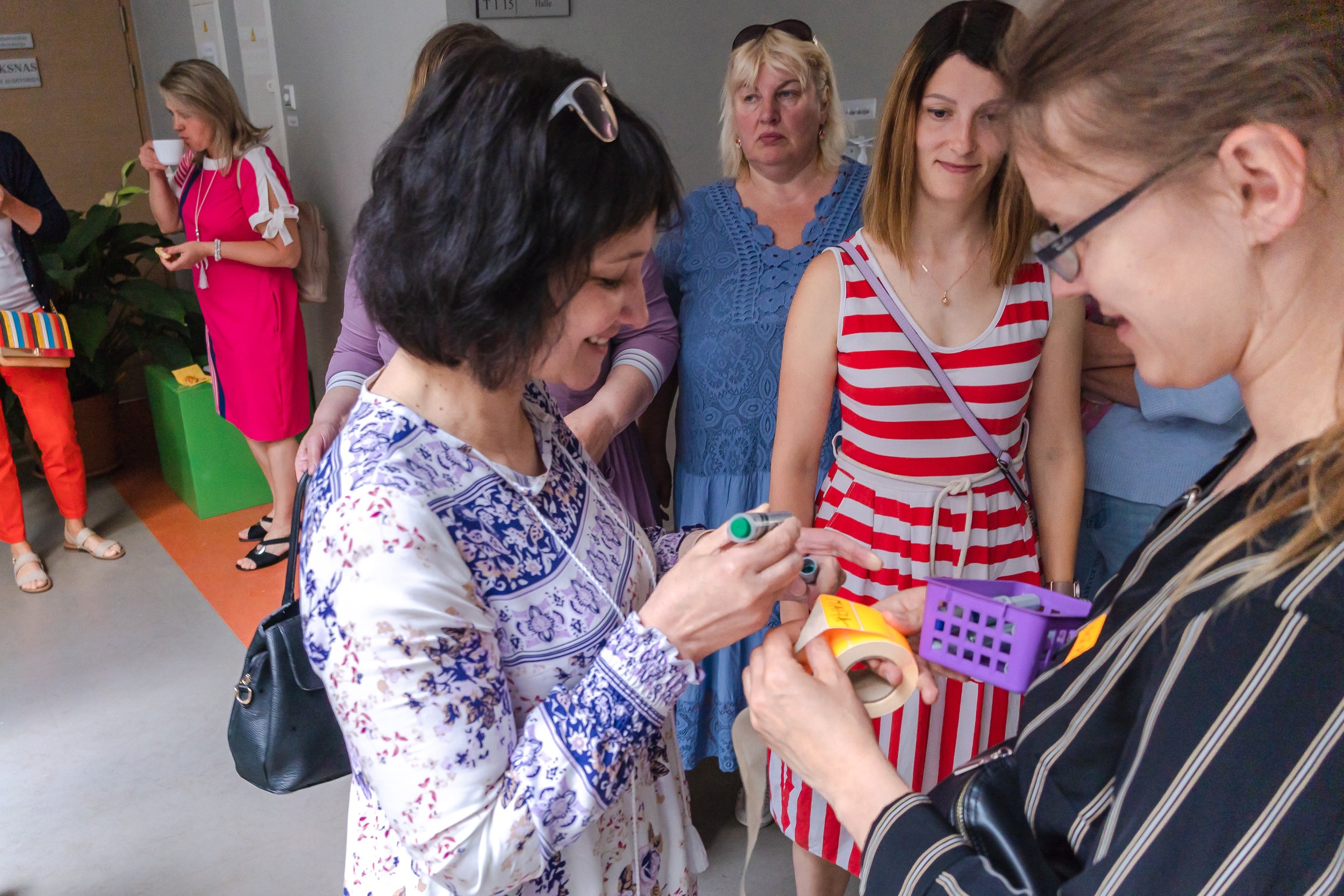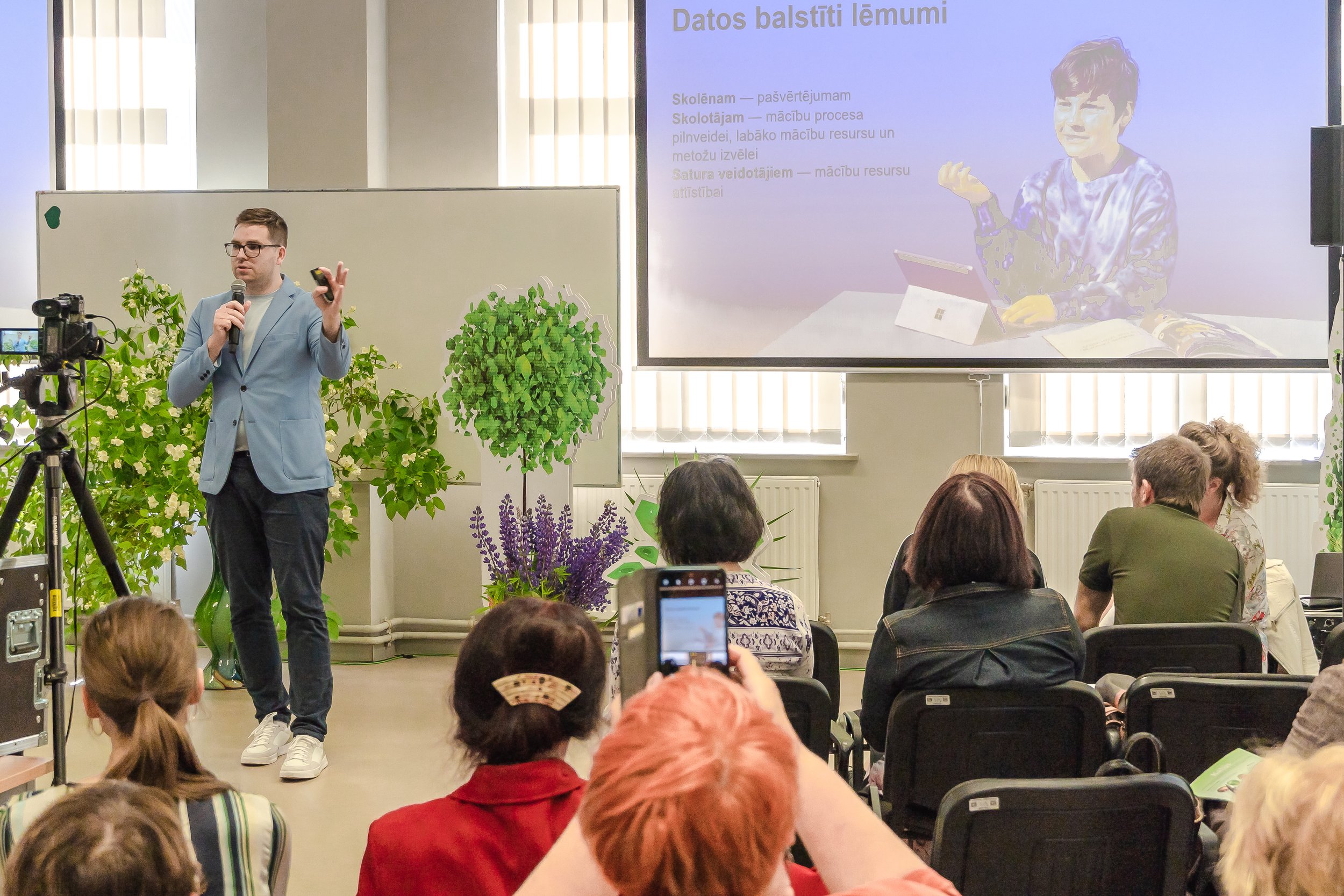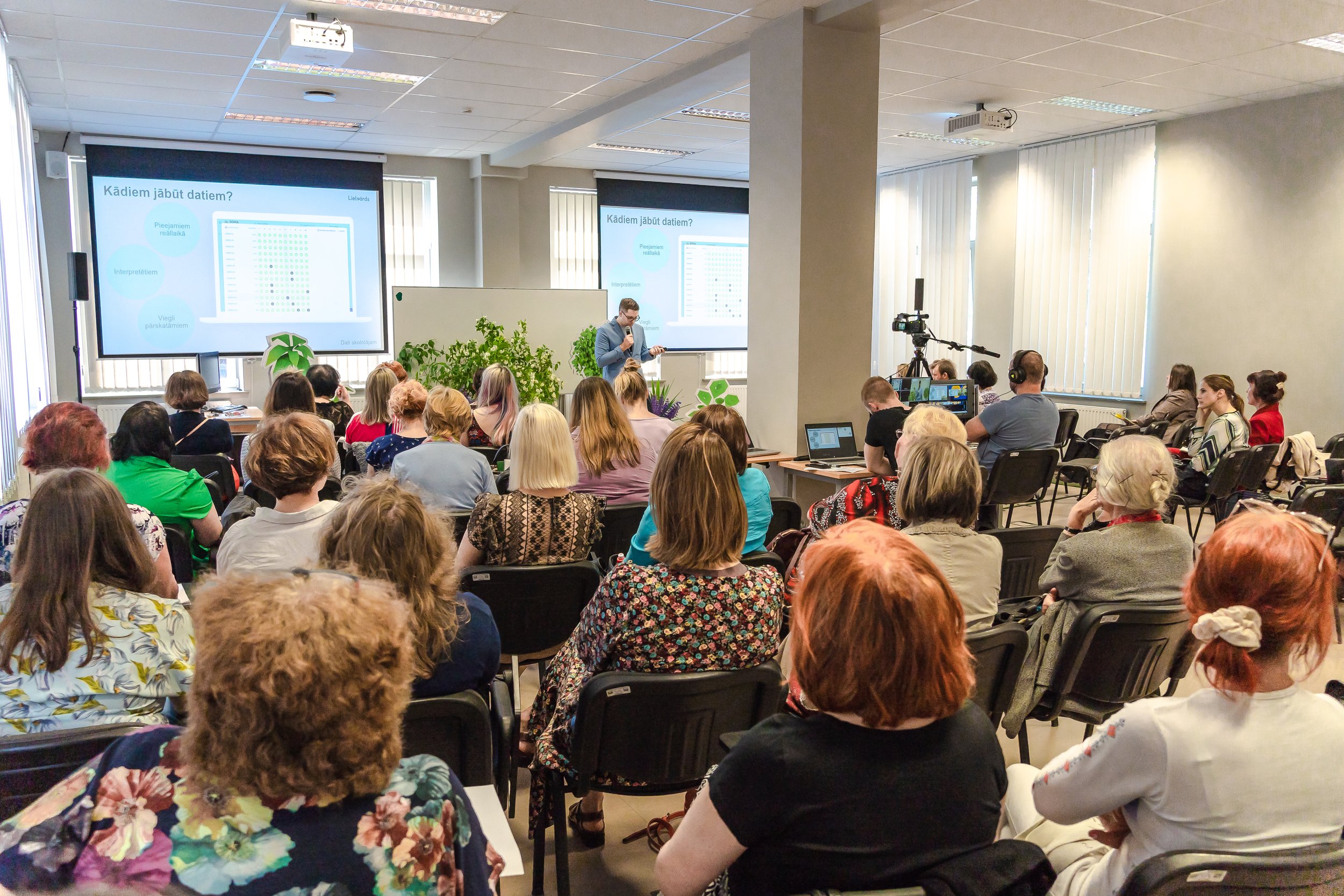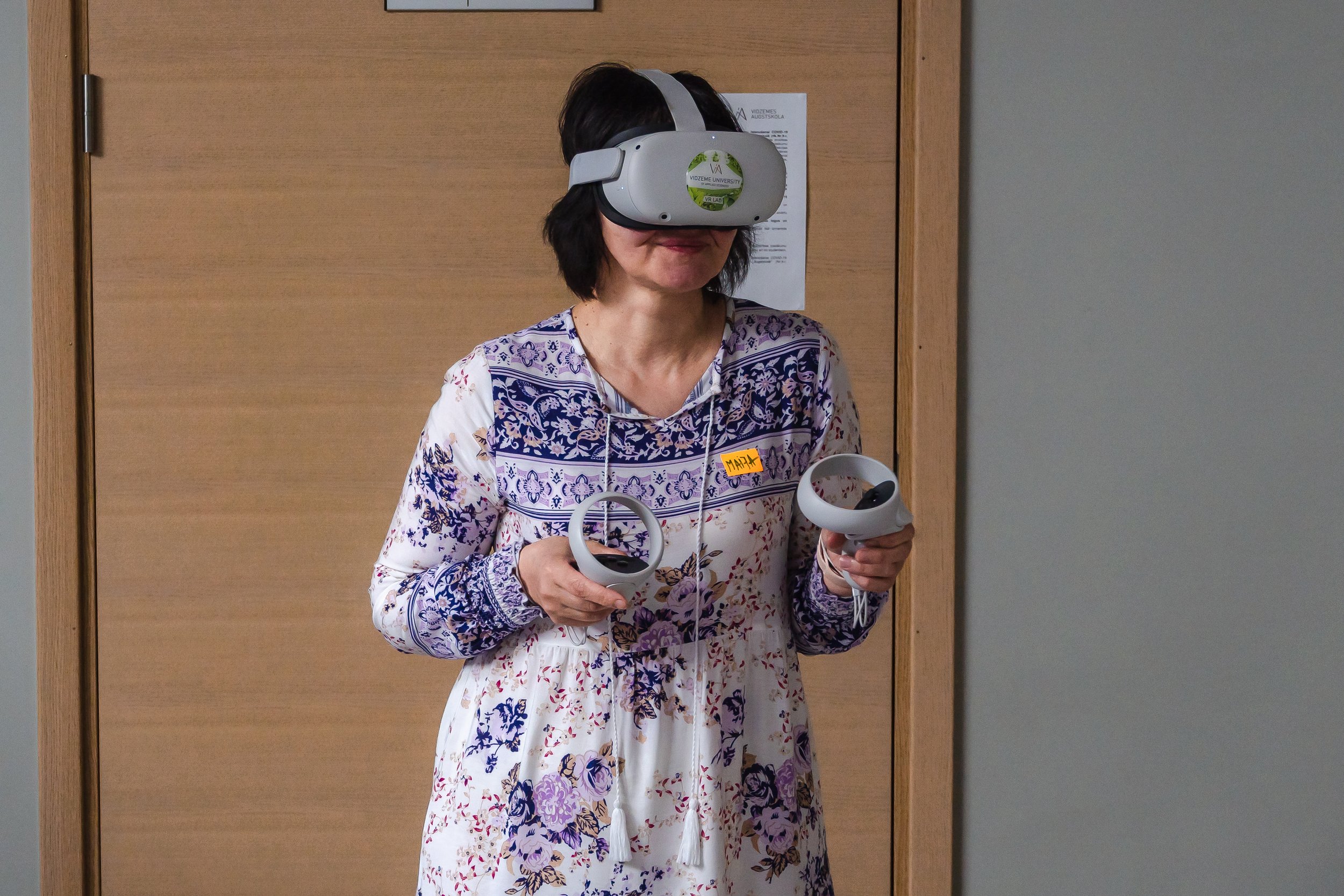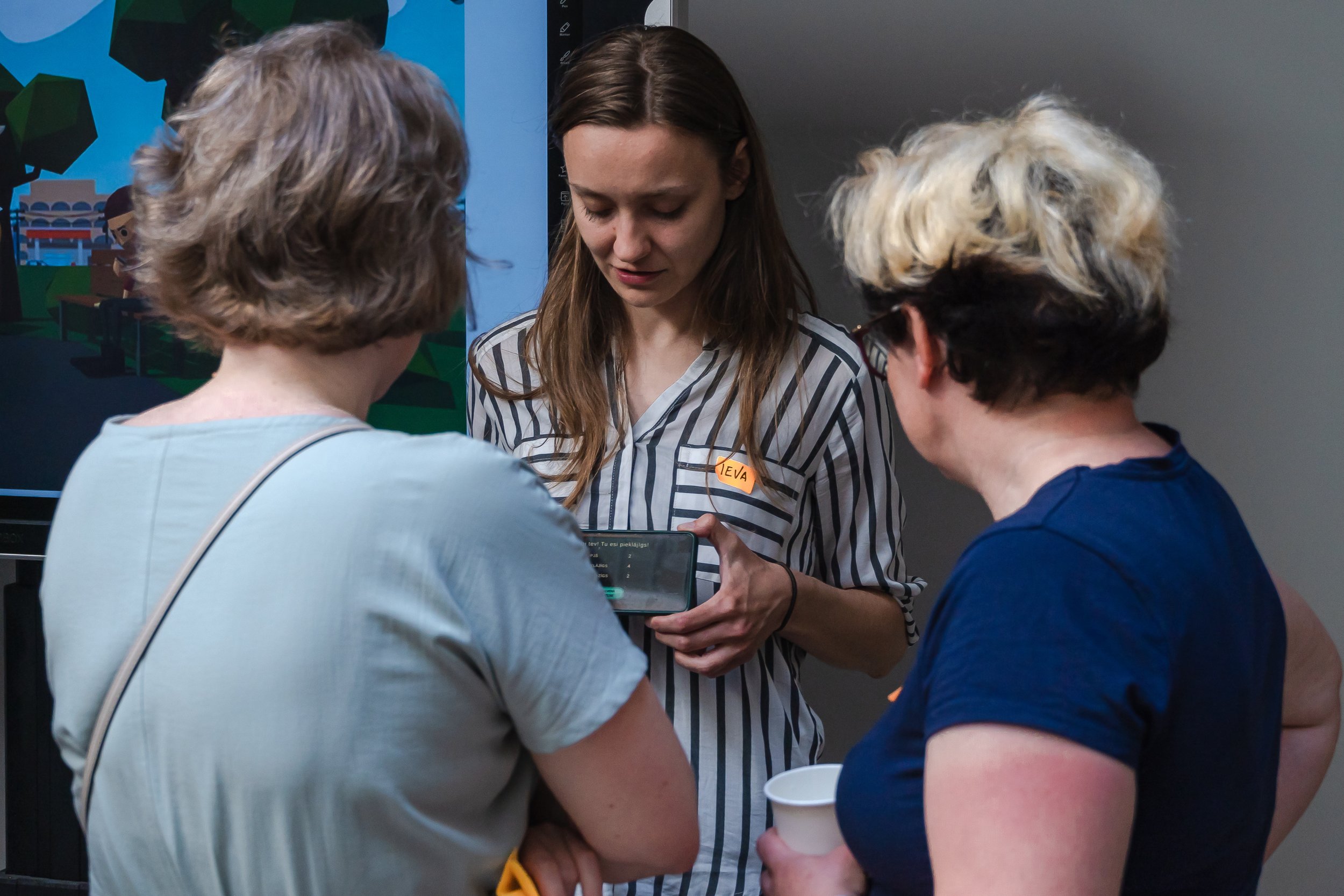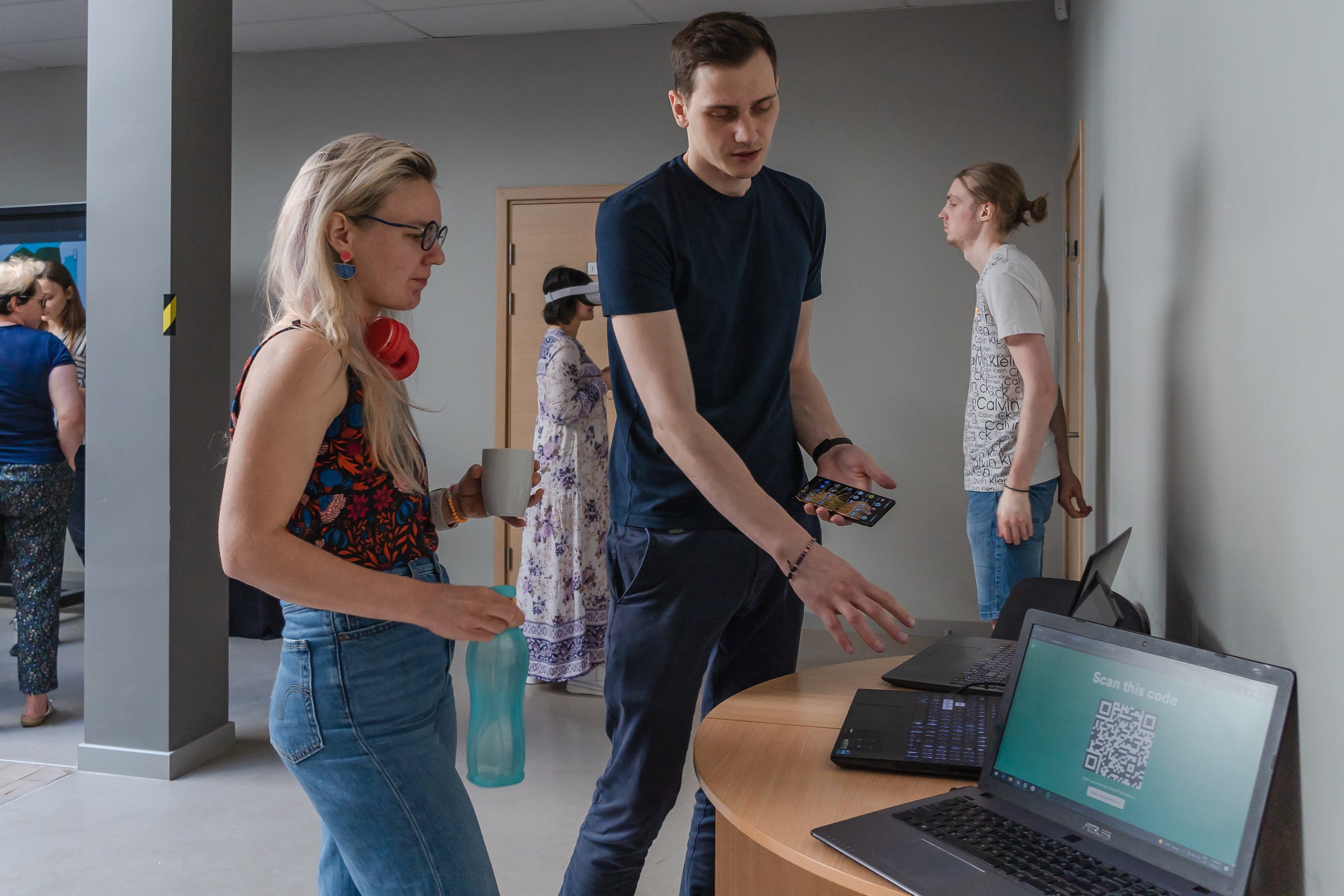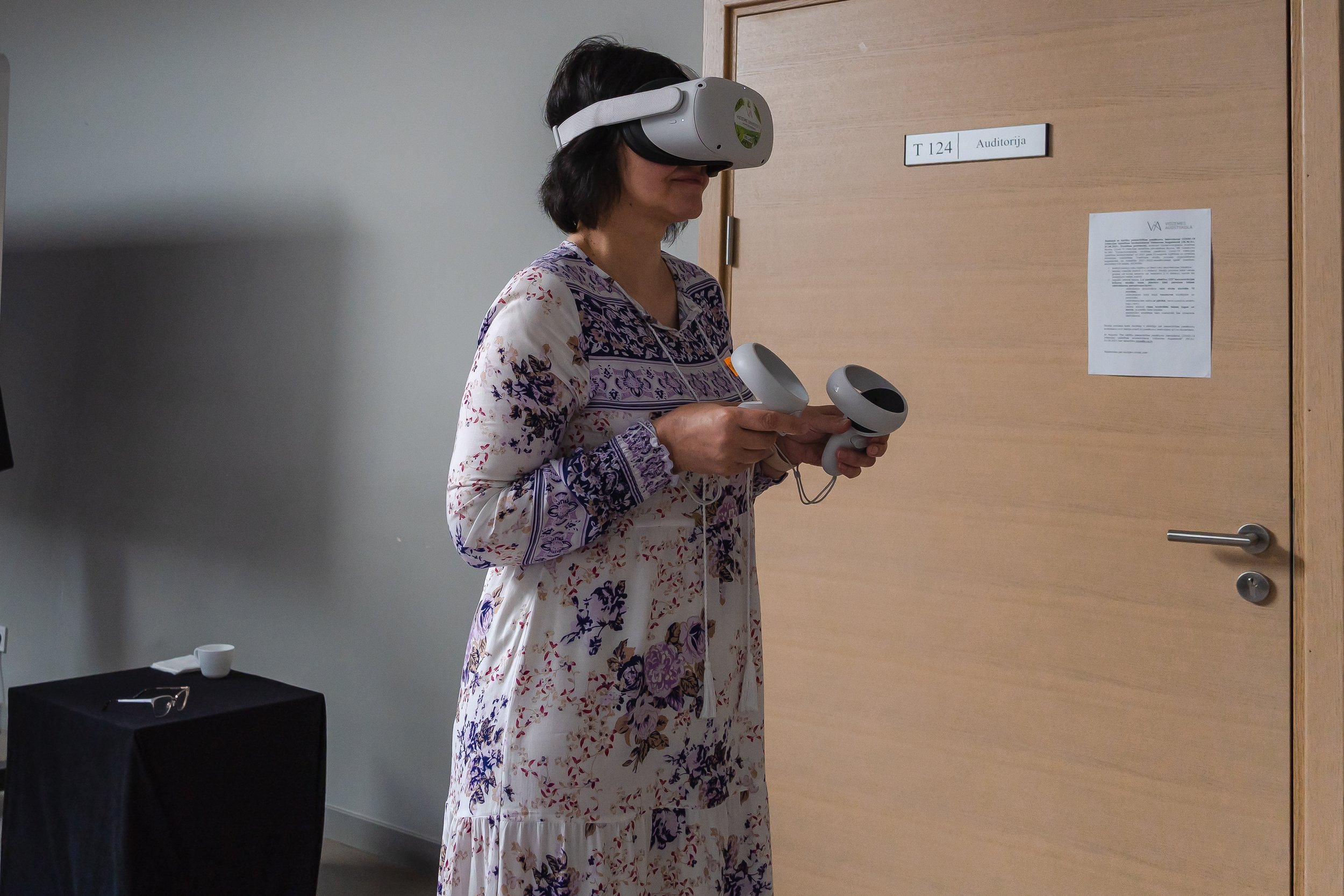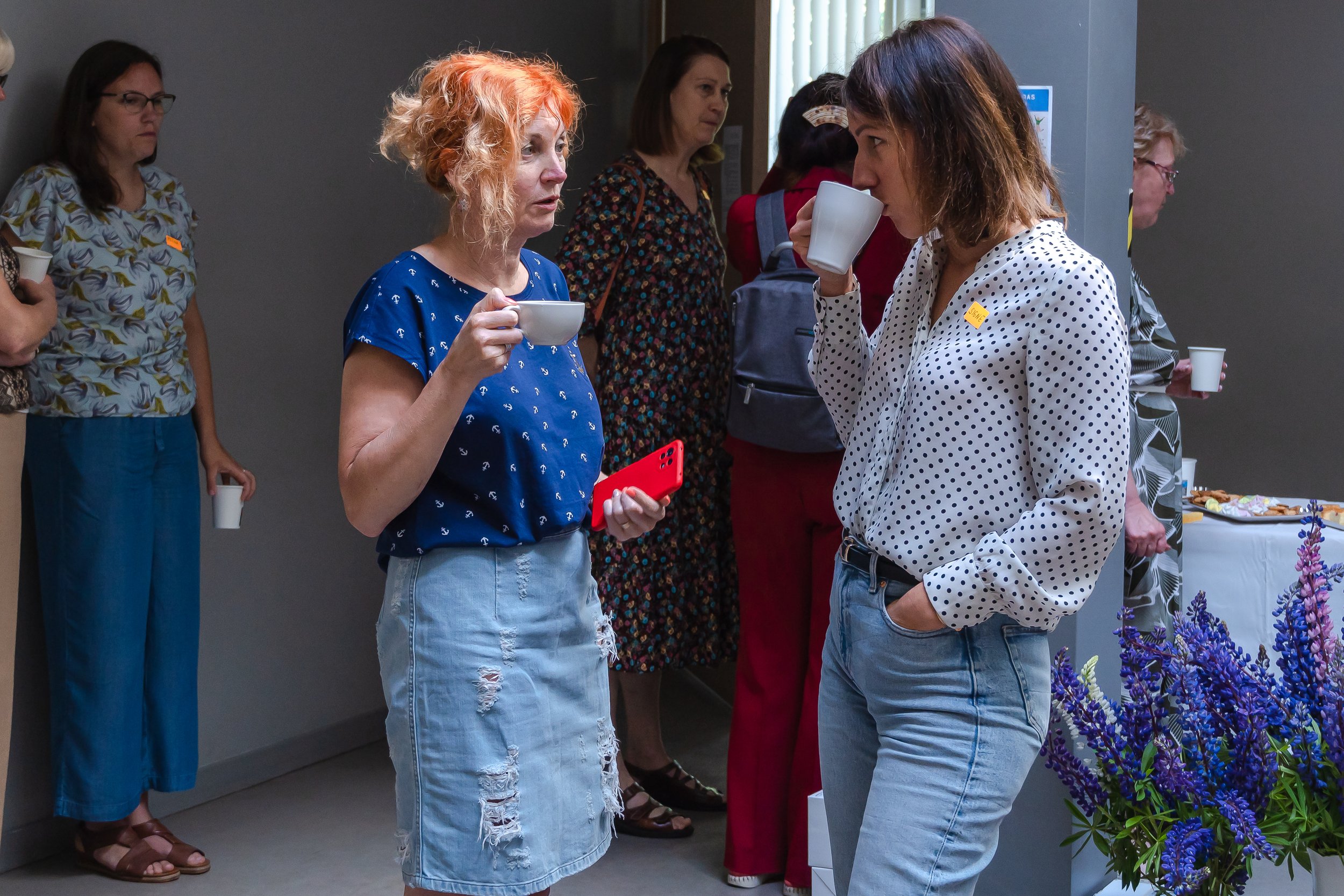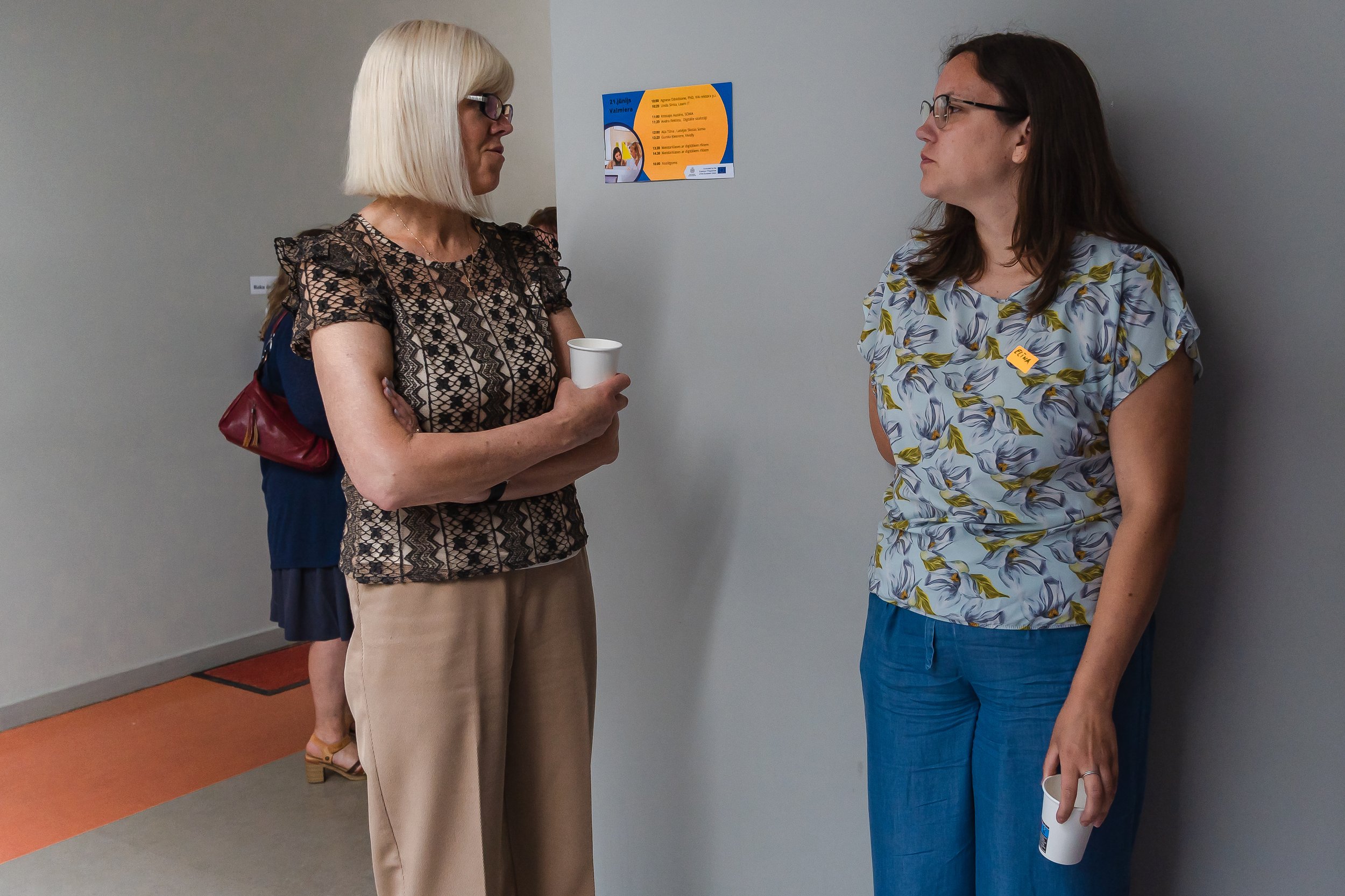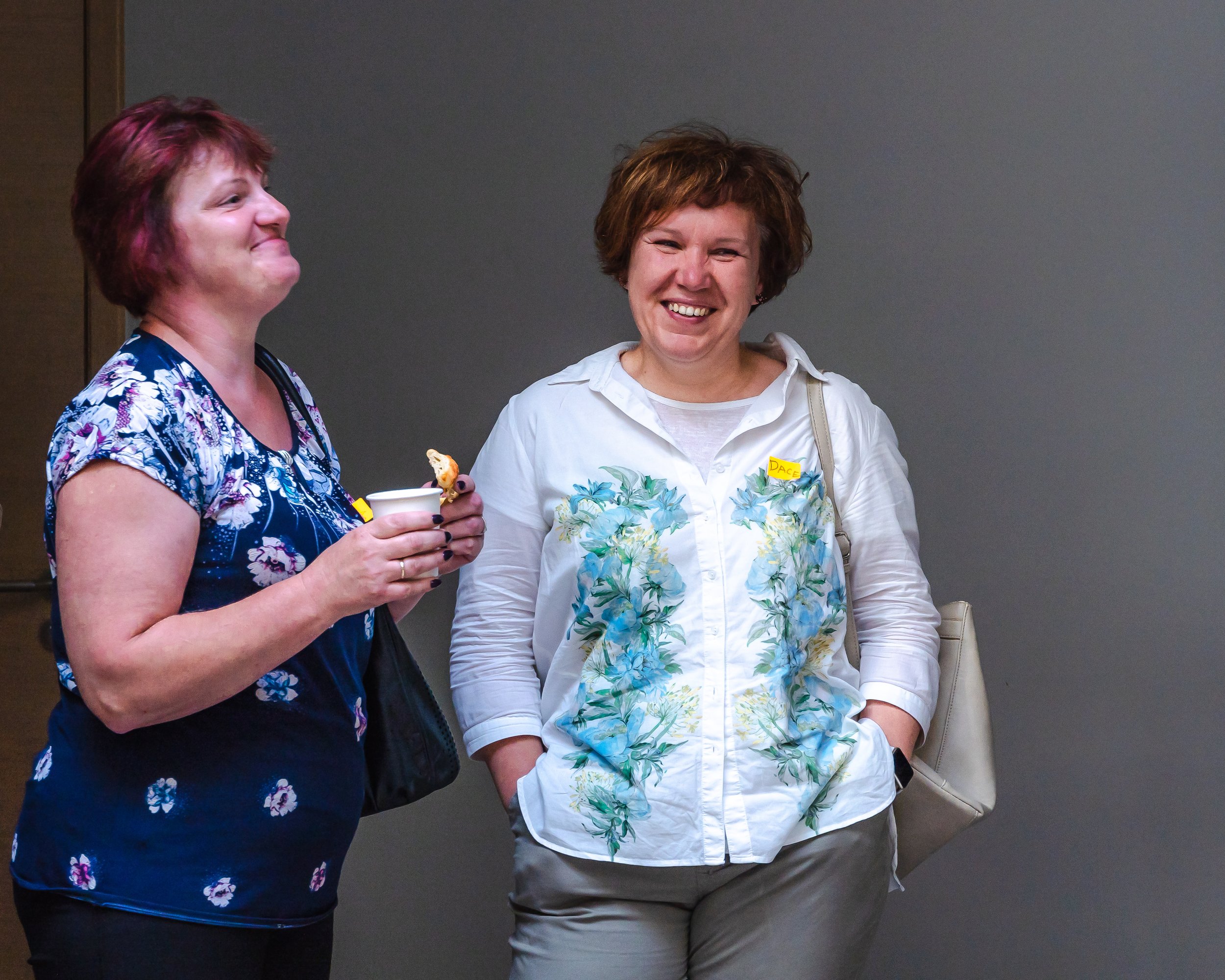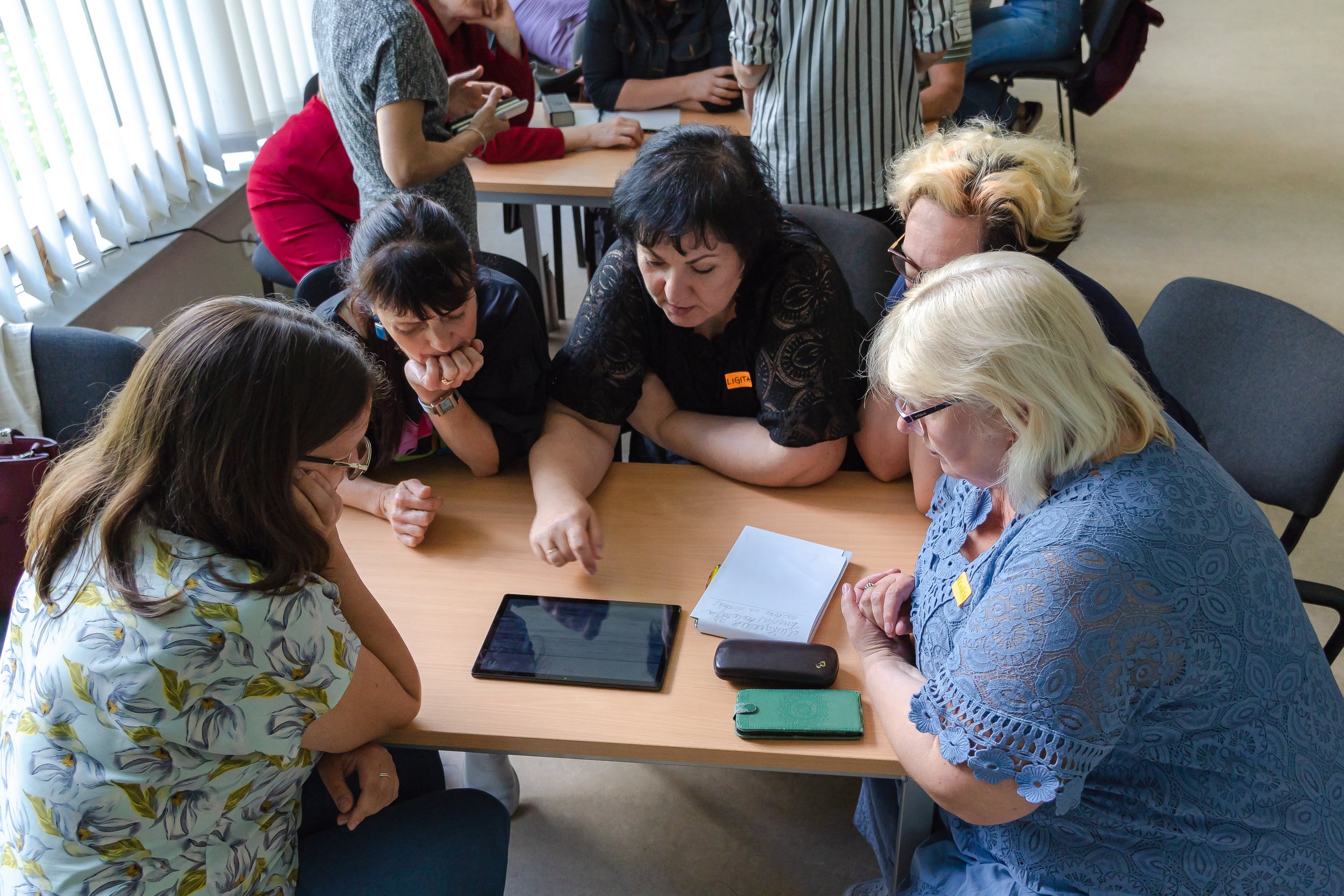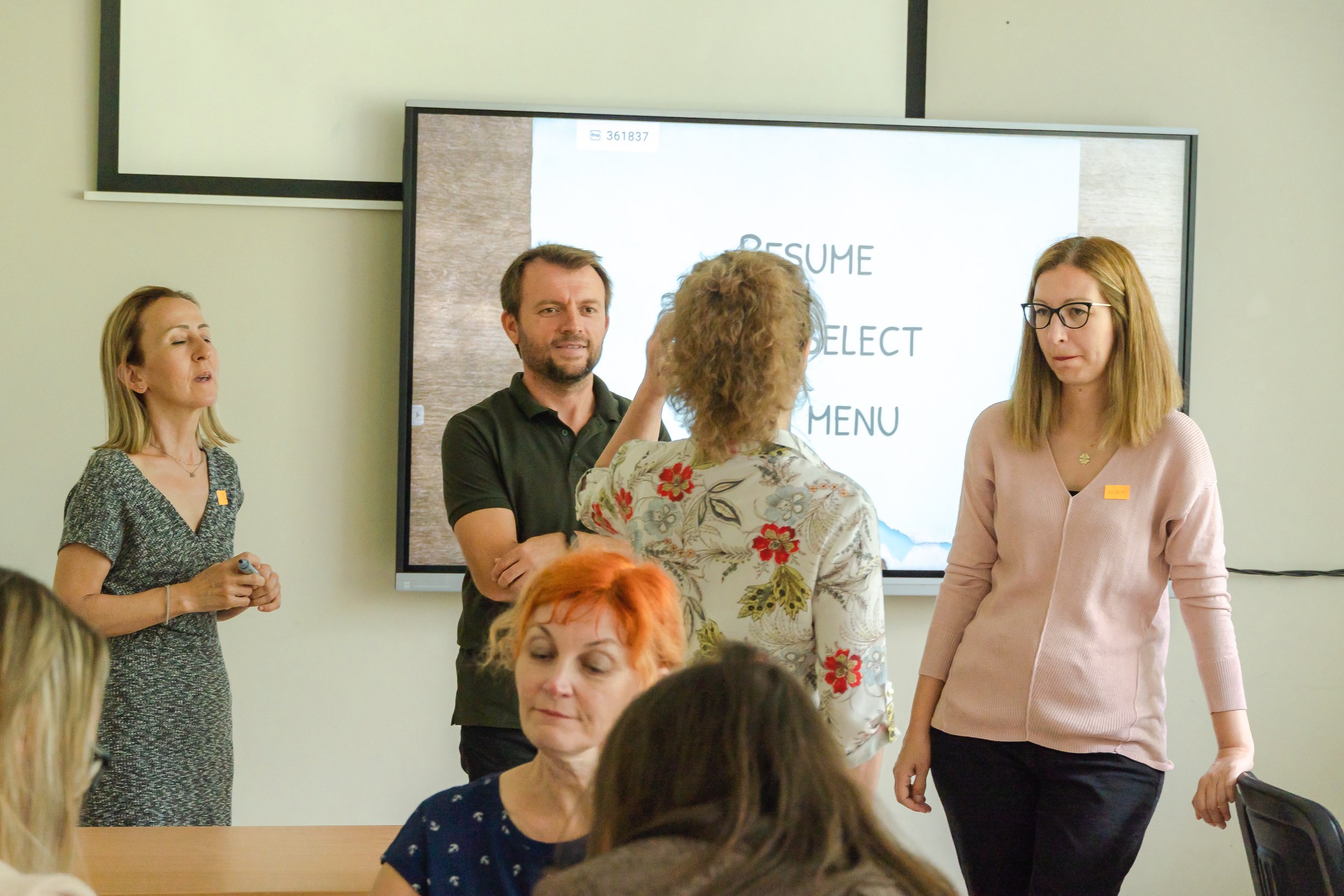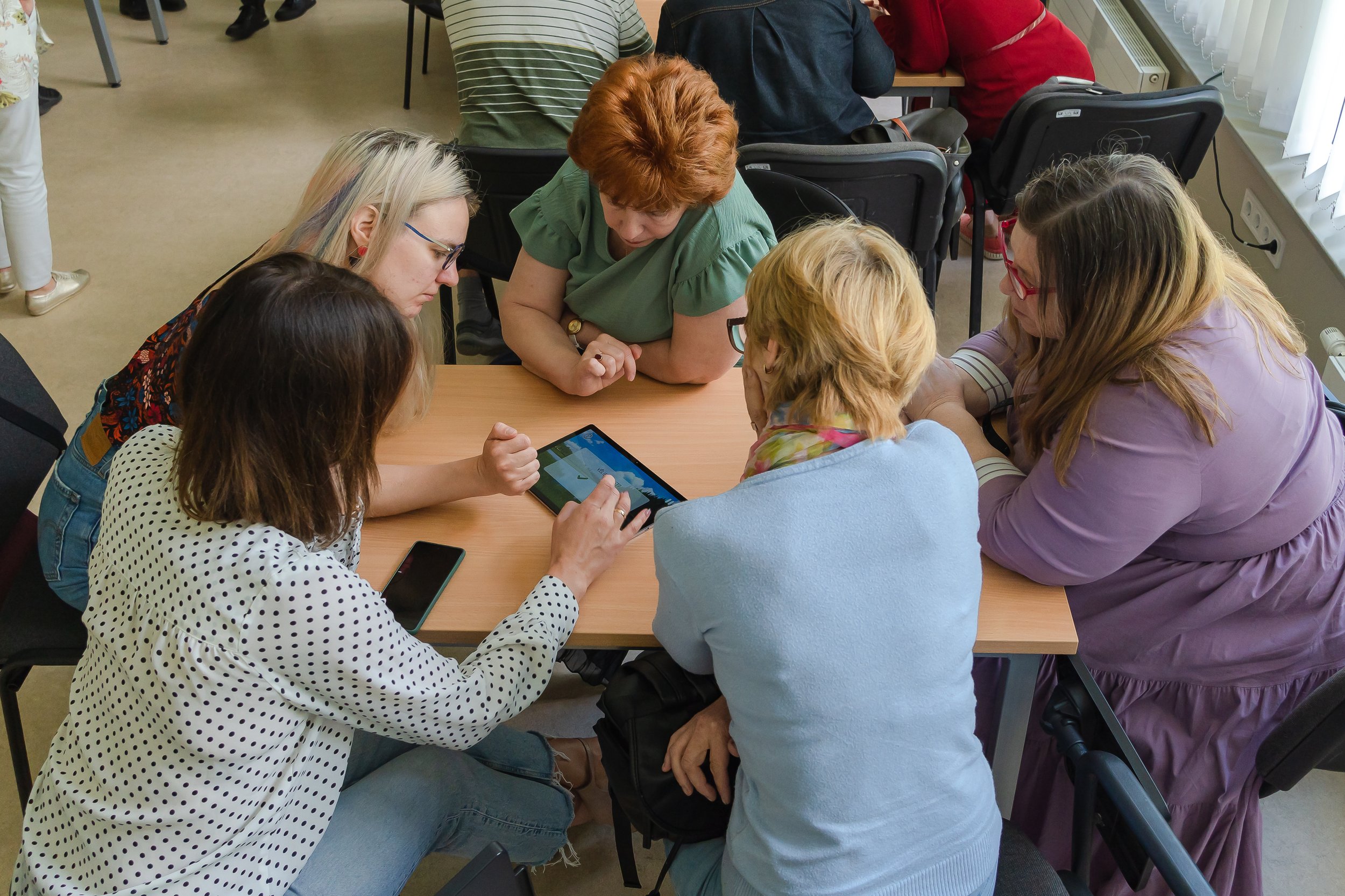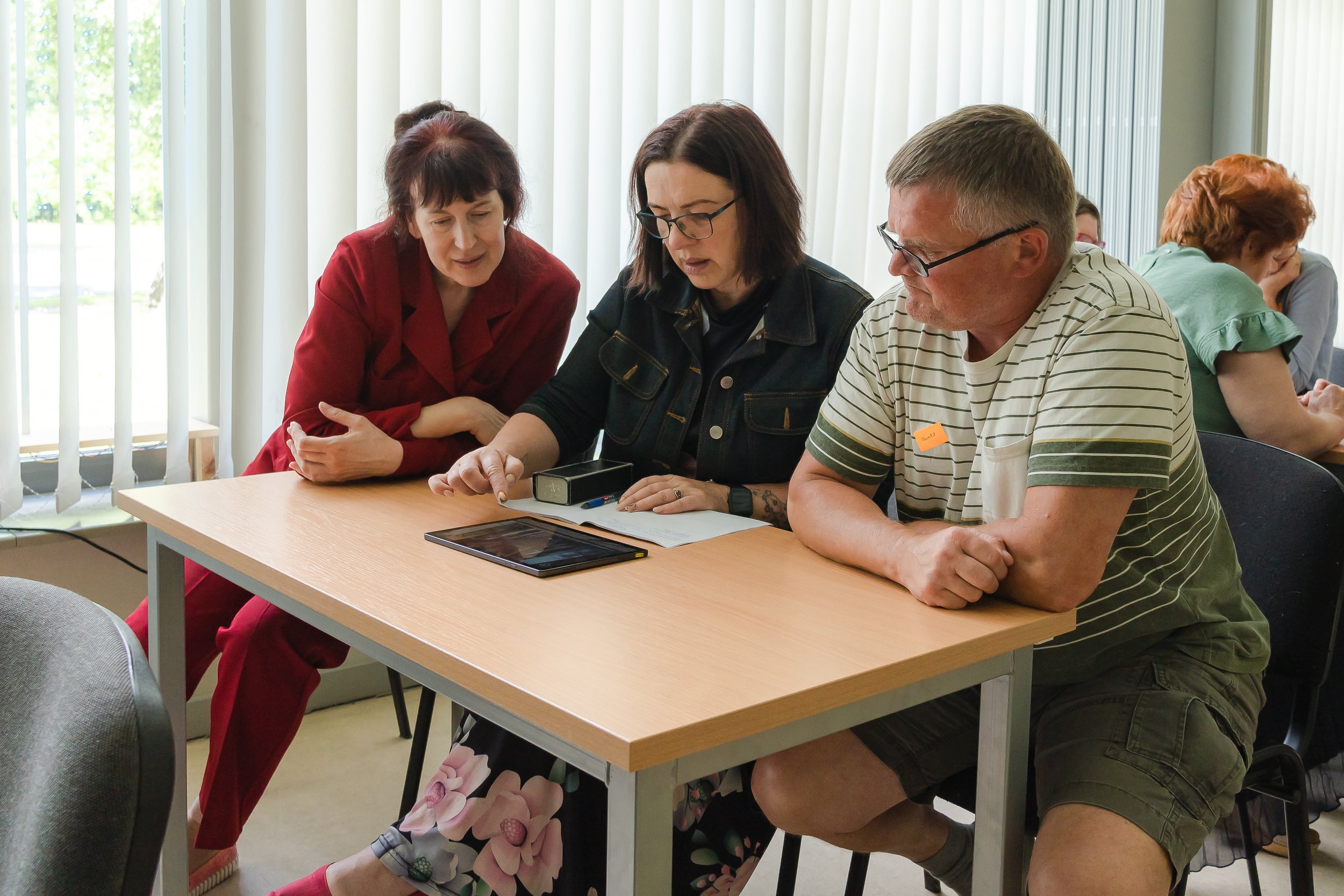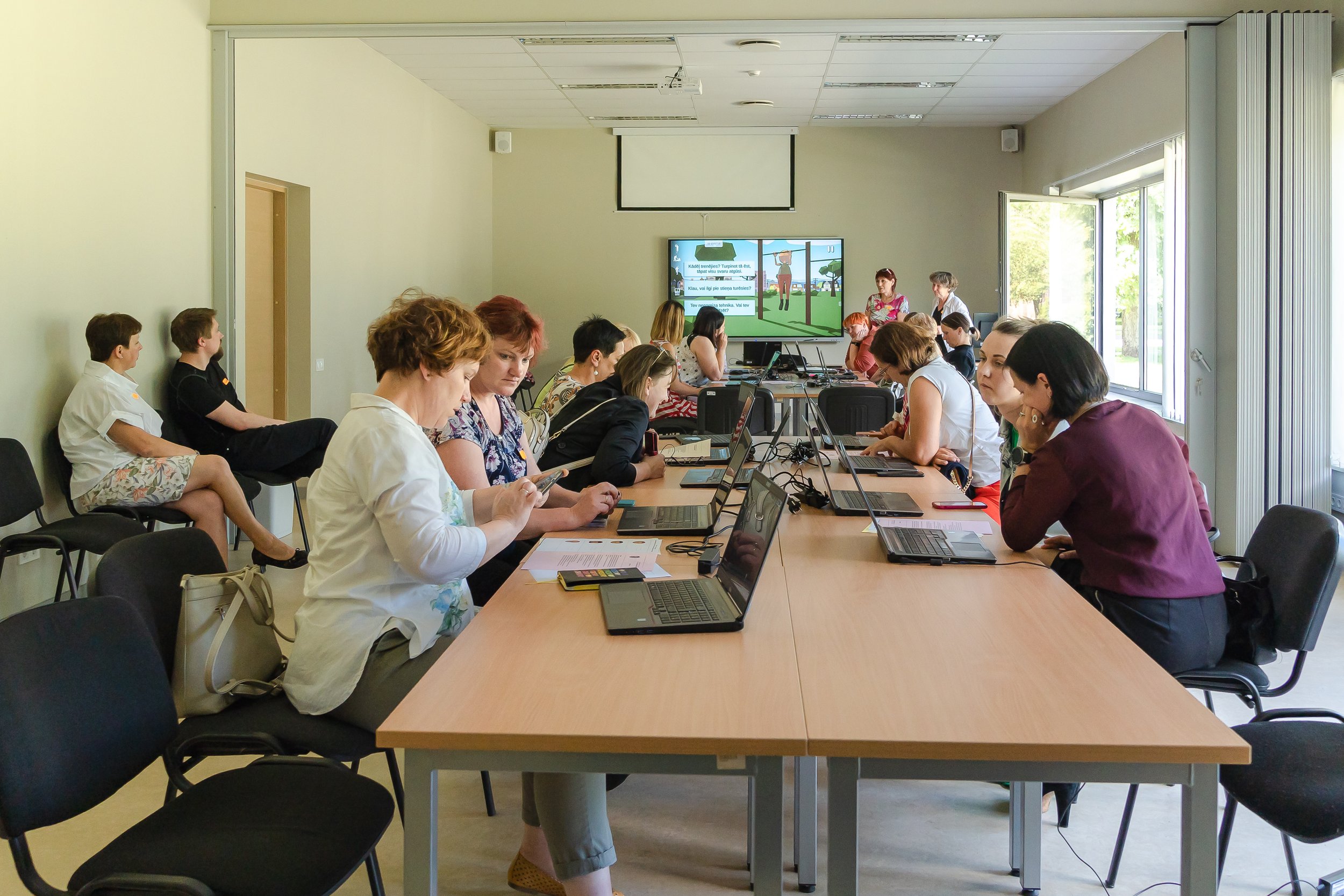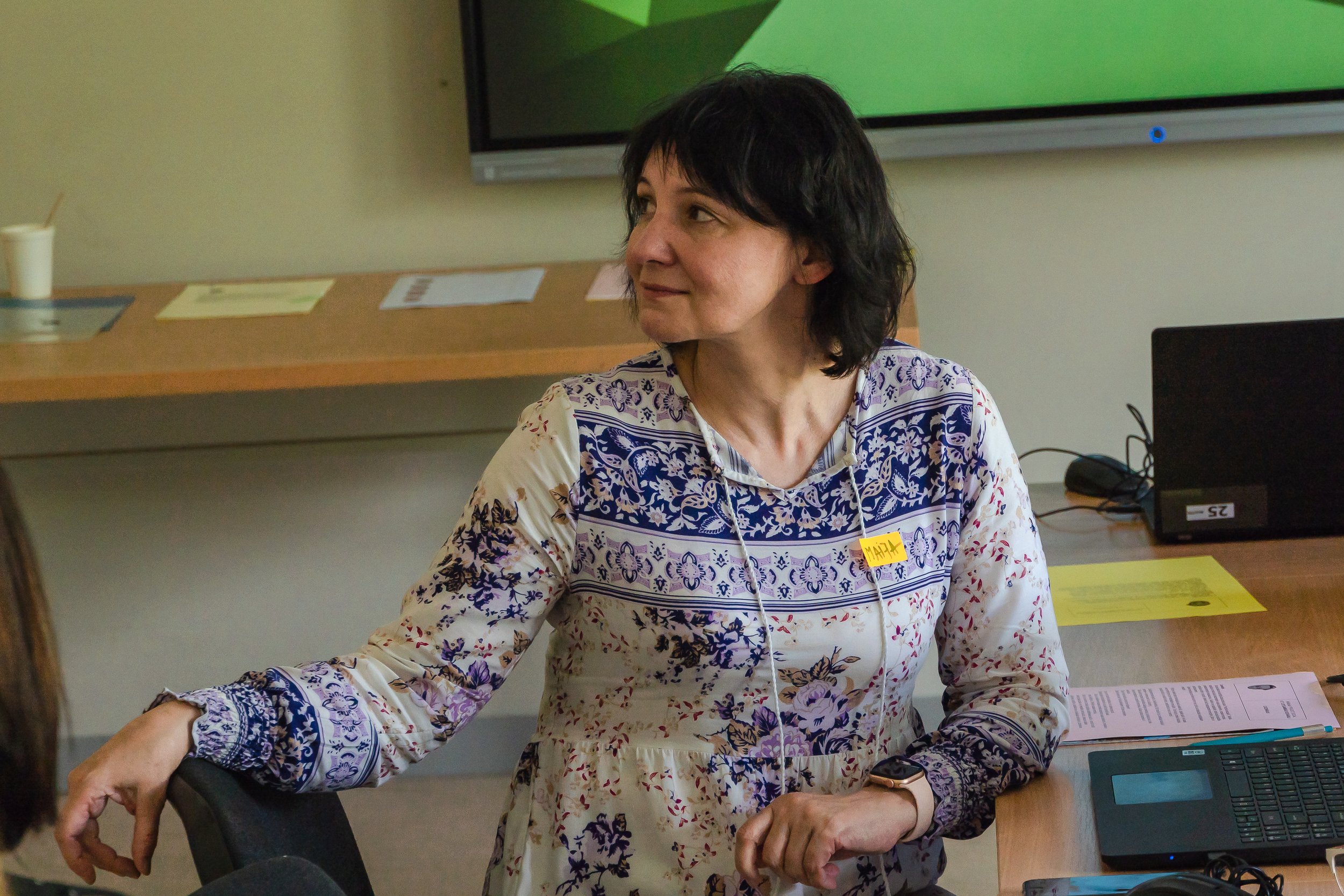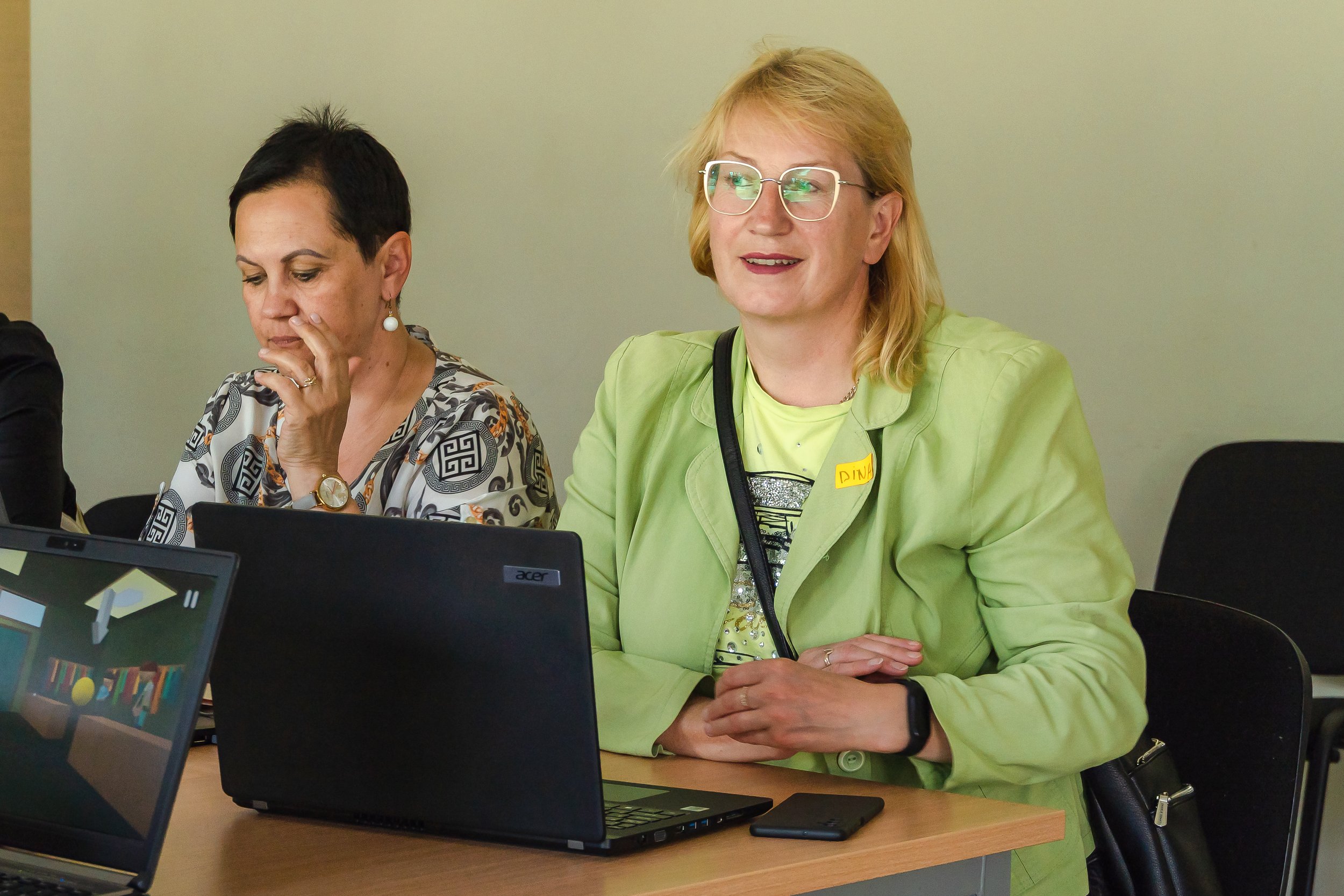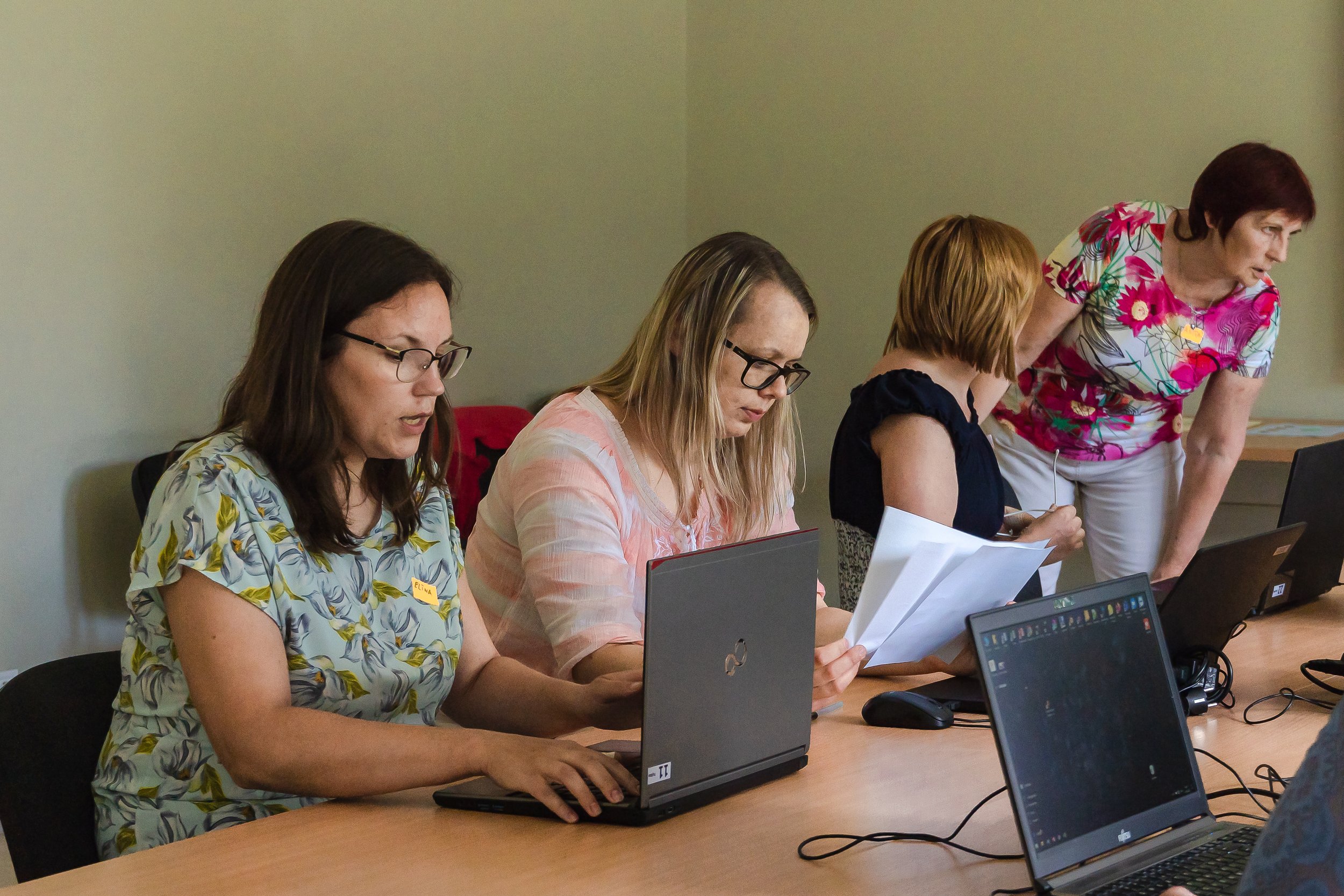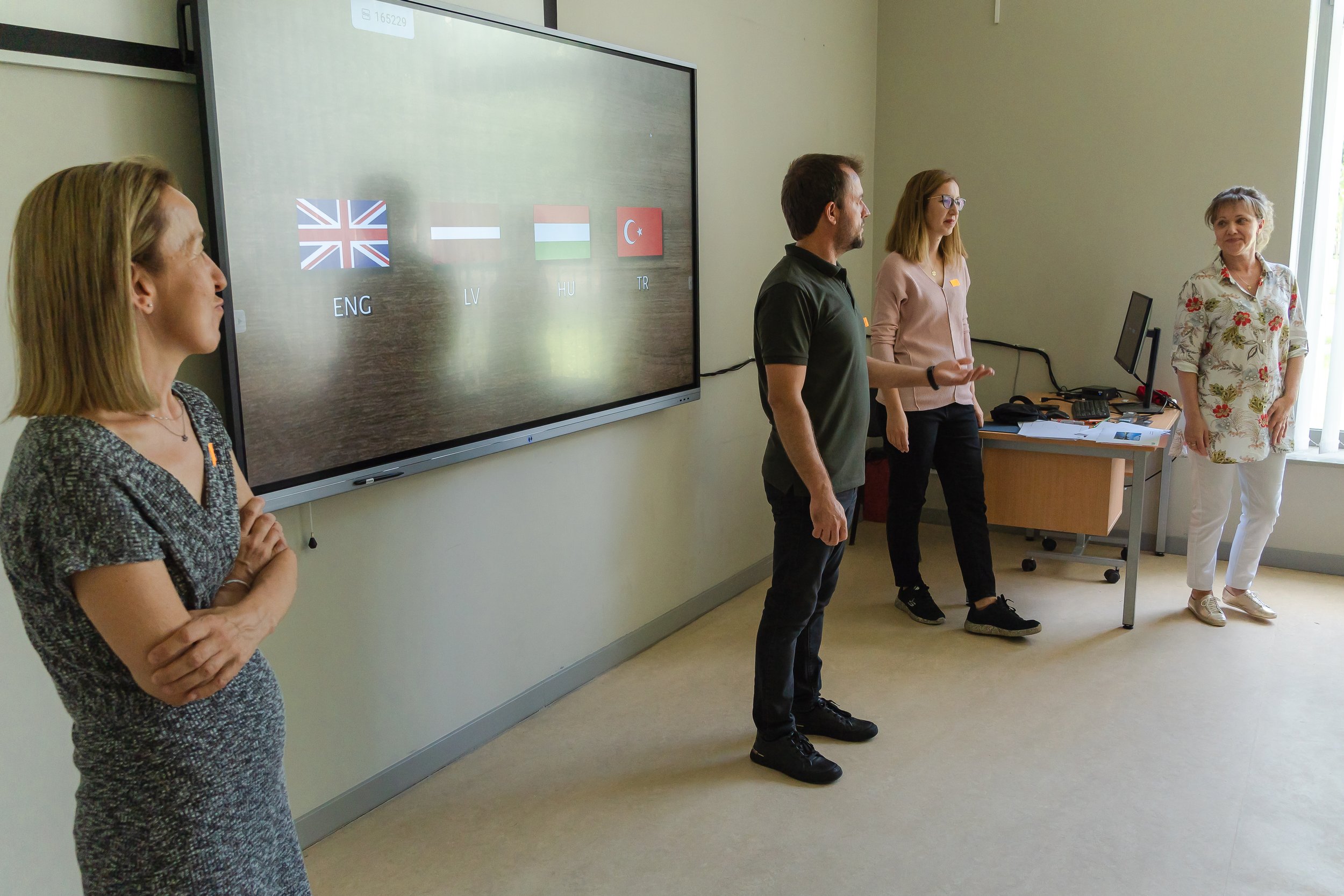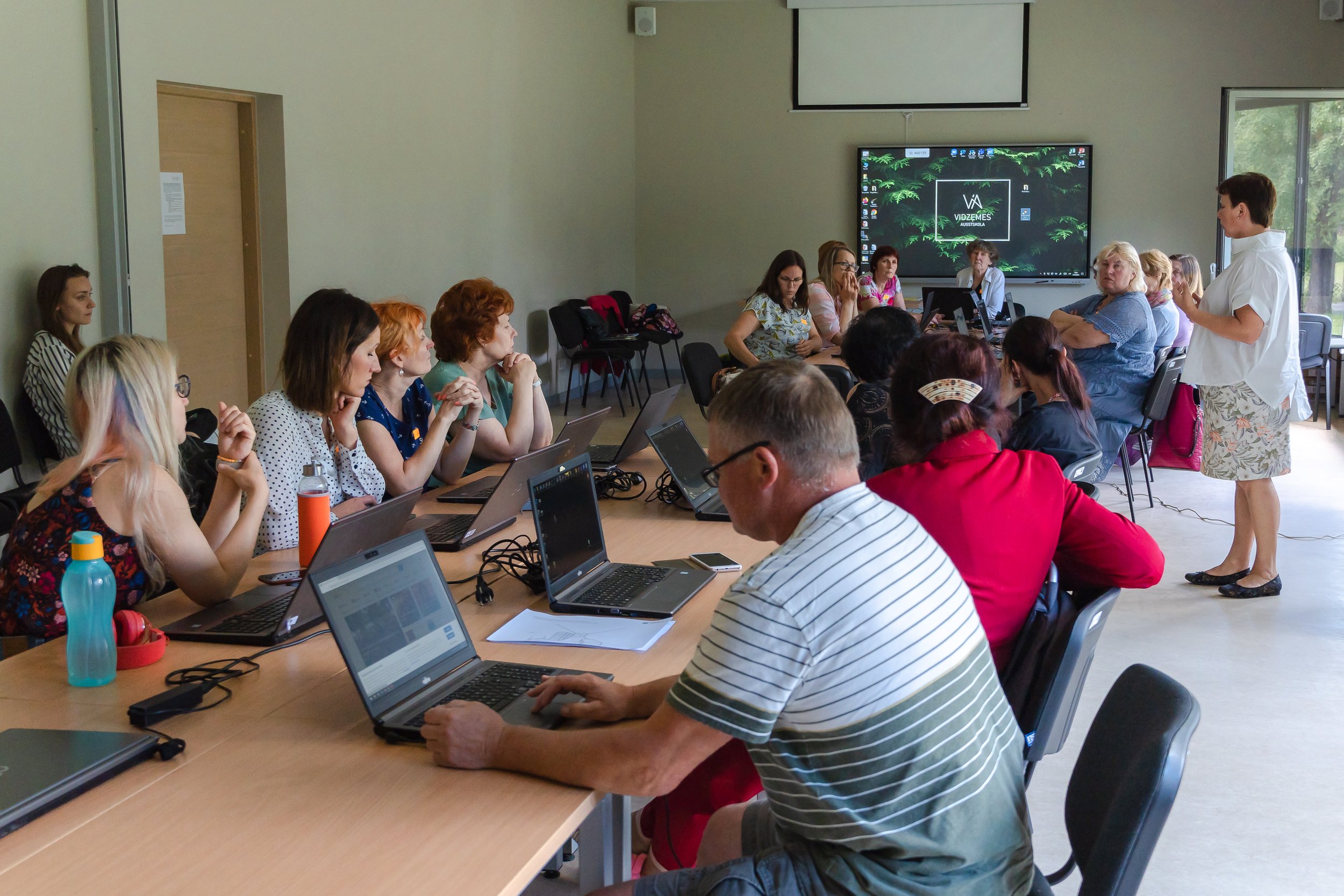"Teachers for teachers" learning apps for teaching social and design skills in schools.
In the forum "For teachers from teachers", Valmiera Gauja krasta high School together with the interactive solutions company "Vividly" as well as a partner school from Edremit, Turkey, developed and presented two educational games for students. It allows educators to teach students social skills as well as design thinking in an innovative and exciting way.
In June, a Forum for teachers took place in Valmiera, Latvia which started with a conference where education and technology experts shared their experience and knowledge about learning in a digital environment. The teachers admit that the last few years have been difficult, they had to learn a lot of new things and react to unexpected situations in the training process. It has been an equally difficult time for students, whose energy was taken by adapting to new learning formats, remote communication, and individual work.
Educators were inspired by several stories about how digital technology can help in these situations. For example, Anda Rektiņa, the creator of the Youtube channel "Digital teachers", shared her experience of how any teacher, without much digital experience, can discover, research, act and, in the end, become passionate about digital tools, thus introducing perhaps small, but real changes in Latvian education. Linda Sinka, Learn IT, presented in more detail the experience of involving students in solving important solutions for society by teaching programming, while Aija Tūna told about the latest interactive and technological solutions offered by the “Latvian School Bag”. Kristaps Auzāns from the company "Lielvārds" spoke more about data, which helps on the way to better education and also eases the already heavy workload of teachers, and the teachers' experience and attitude towards digital challenges were summarized by Ph.D. Agnese Dāvidsone, associate professor at Vidzeme University.
You can follow up on all the presentations of the conference participants on the Vividly YouTube channel he.re.
On the other hand, in the second part of the Forum, educators from both the Vidzeme region and other places in Latvia practically learned the new digital tools for impact, which are currently available to everyone and can be a useful assistant in working with students.
The "Project: Social Kid" app is designed to learn and develop social skills, specially designed to be used also in working with children with special needs at different educational levels. Five scenarios can be played in the app, where, depending on the choices, the development of the scenario can be affected. Students, while playing the game, must observe the social conditions and make a choice - about how they would communicate in such a situation. "Project: Social Kid" is intended for teachers whose subjects children learn social skills, social workers and other educators who become mentors for students.
The "Project: Perspective" application is created to help learn and develop art and design skills. The app will be an appropriate daily assistant for teachers who teach art, painting and architecture. It is an educational game that allows you to improve perspective understanding and drawing abilities and helps you learn 3D image understanding. The game has three parts - horizon, one-point perspective and two-point perspective - to learn. Students can work both individually and in groups, and it is possible to integrate it into the curriculum.
The developers have also created guidelines for understanding and using digital tools summarised in the online "Educators Guidebook". It will be available on Vividly's website at www.vividlyapp.com/erasmus, along with information on how to download the digital tools, worksheets, and exercises for each tool that will help the teacher integrate digital tools into lessons and the curriculum.
About the project:
The project "Innovation is a mindset. Creating digital tools for impact.” was financed with the support of the European Commission's "Erasmus+: Youth in Action", which is administered by the State Education Development Agency in Latvia. This publication reflects the views of the author only, and the Commission cannot be held responsible for any possible use of the information contained therein.

